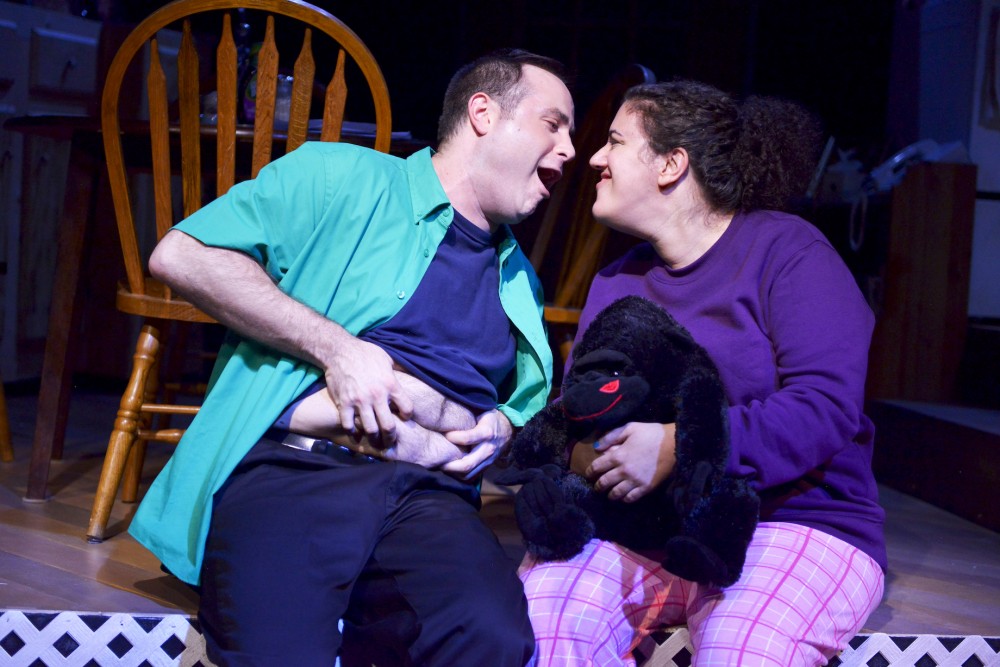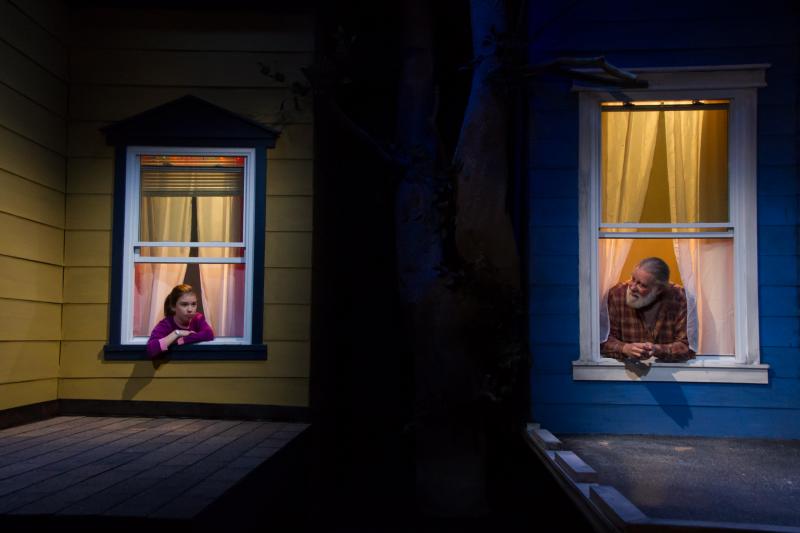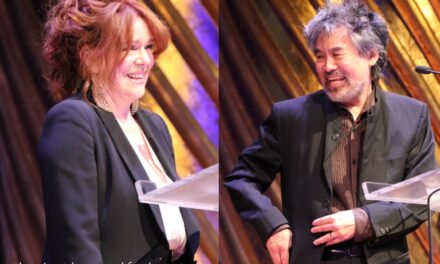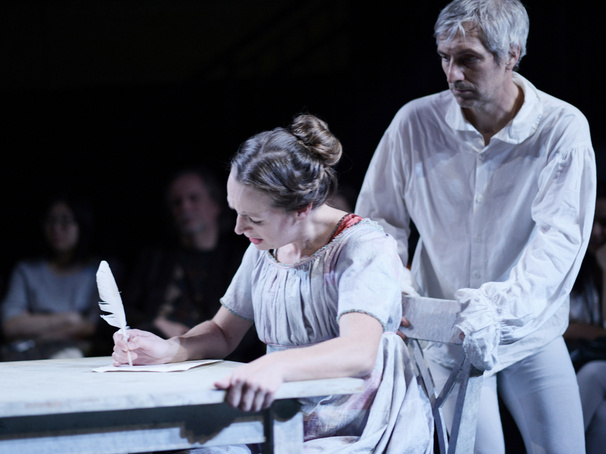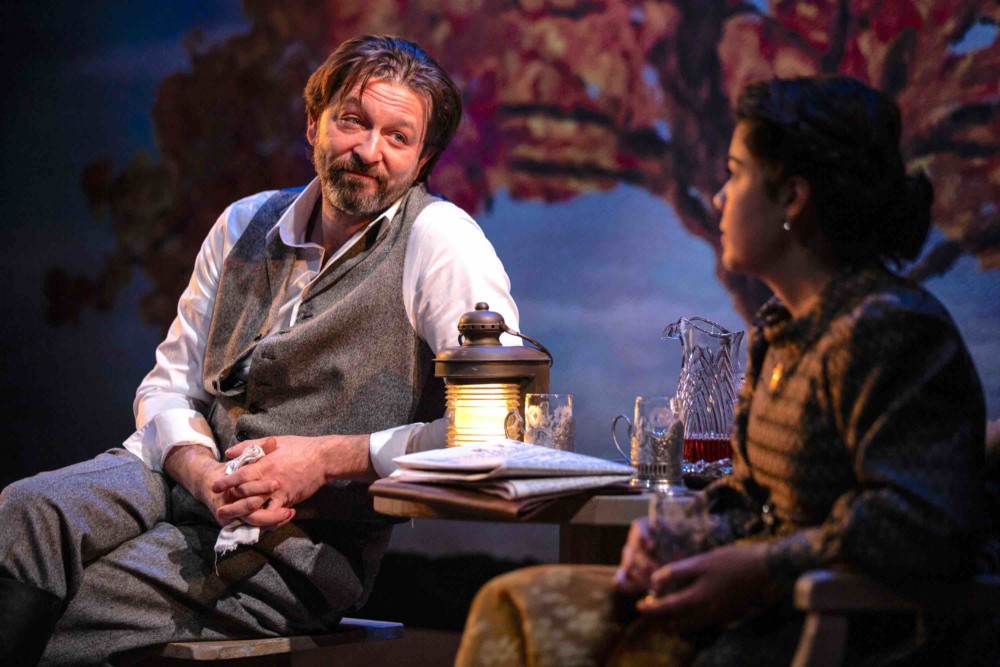
Alexander Sokovikov & Brittany Anikka Liu in a scene from The Artist.
By Marcina Zaccaria
Nicov (Alexander Sokovikov) considers his easel with three brushes, wet with paint, in The Artist, the first story adapted for the stage in Chekhov/Tolstoy: Love Stories.
The artist takes time to walk away from his creation. With a thick Russian accent, Sokovikov seems to push out each phrase, letting the words loom heavy in the air. A determined artist, Nicov captures the attention of Genya (Anna Lentz). Only 23, she yearns for a life filled with depth and reason. With tea service at the table and a large orange tree in the background, she speaks of her melancholy— and demands to know why Nicov paints.
With a twinge of indecision and a hint of despair, Genya is absolutely comparable to Nina in The Seagull. Yearning for a better life, wanting the opportunity to discuss the human being, and lacking the inner strength to stand for herself, Genya refrains from directly asking for what she wants.
The Artist, adapted by Miles Malleson from “An Artist’s Story” by Anton Chekhov, is translated by Constance Garnett. Like The Seagull, it places the magic of art-making in a beautiful Russian garden— and Genya, like Nina, reaches to an established older man to develop her worldview. Her sister, Lidia (Brittany Anikka Liu), remains her strongest confidant. The Mother, played by Katie Firth, is a guiding force, especially under the direction of Jonathan Bank and Jane Shaw.
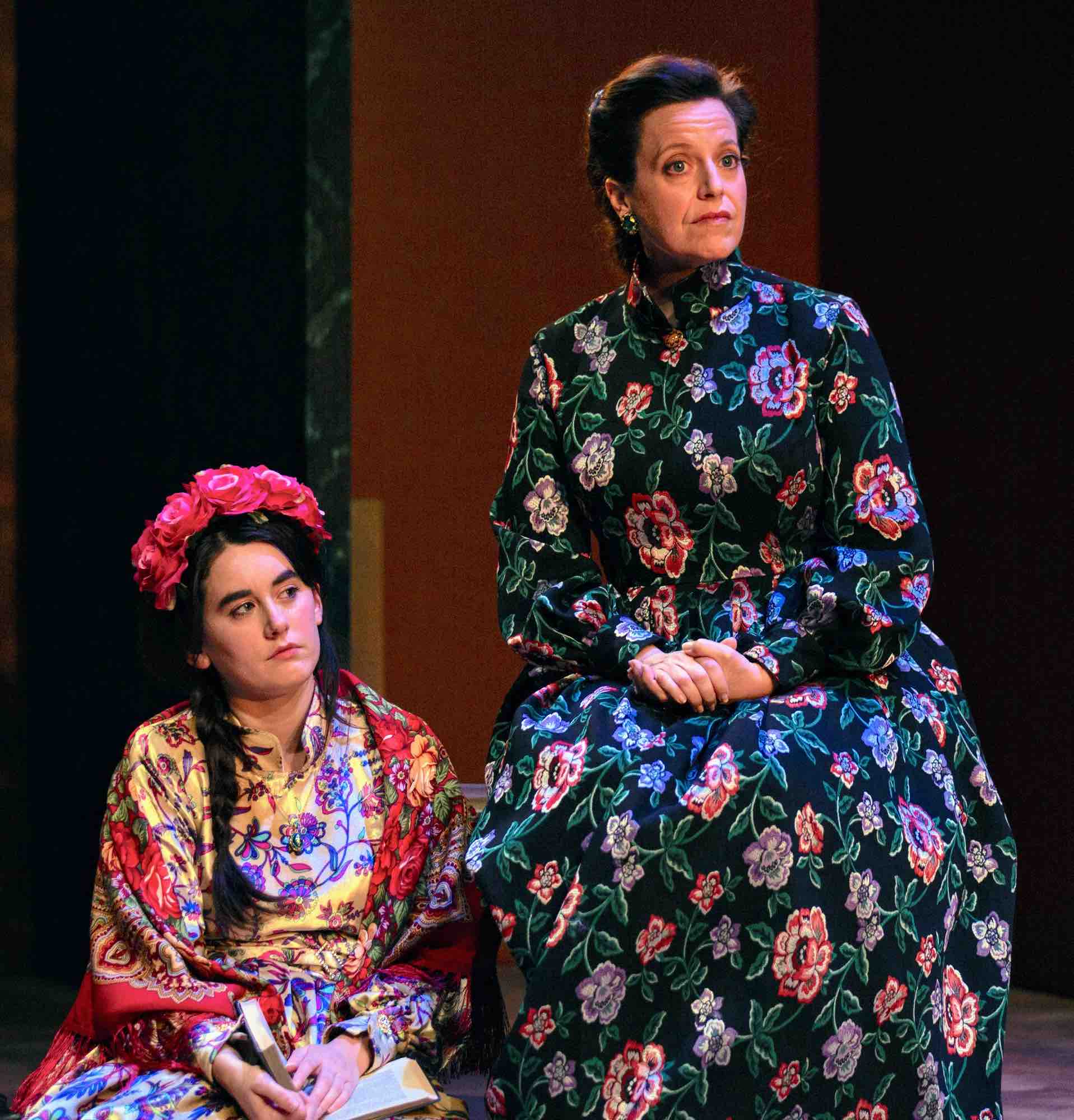

Anna Lentz & Katie Firth in a scene from Chekhov’s The Artist.
While Chekhov’s love story never becomes completely resolved, it is a delight to hear the titular artist defend his art and his position on the human condition: “Cold, hunger, animal terror, a great burden of endless labour— these things block the way, like avalanches of snow; block every way for them to the life of the spirit— the human spirit that’s in every one of them. The thing that distinguishes men from the beasts— the only thing that makes life worth living.”
The Chekhovian text leaves you with the reassuring feeling that you can pick up the necessary philosophy where you left off with it, whether it be somewhere in the complex structure of The Cherry Orchard or back dreaming of Moscow in Three Sisters. Whichever play it reminds you of, it’s undoubtedly a pleasure to hear again— and a joy to watch on stage. Alas, Tolstoy is a bit more troubling.
In Michael— adapted by Miles Malleson from “What Men Live By” by Leo Tolstoy and translated by L. and A. Maude— a painted, glimmering, orange tree is inverted to reveal white roots emerging from the ground. A stranger is brought to work with a shoemaker and his family. Michael himself (Malik Reed) is enigmatic throughout. Silent, he learns how to make shoes needed by Russians in a less than beautiful world. Death slippers are essential when an offstage character dies— after new boots had been ordered for him.
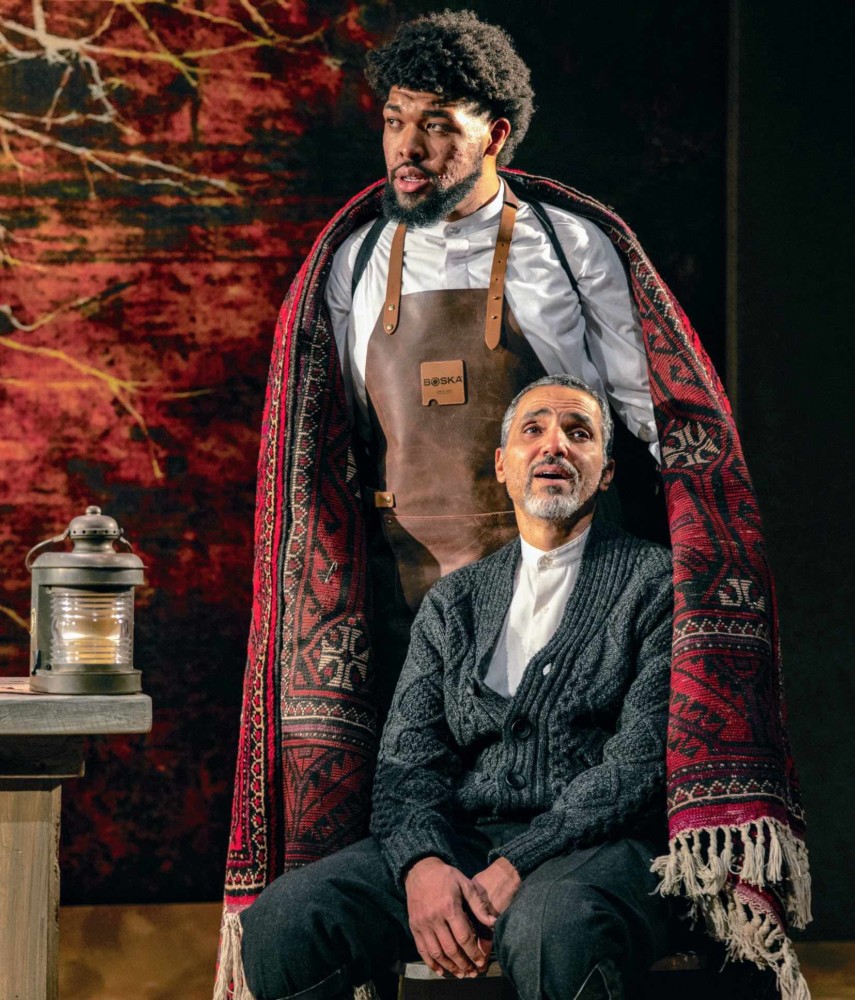

Malik Reed & J. Paul Nicholas in a scene from Michael.
At the end of the play, Michael delivers a long, potent monologue. It is stern, and addresses the moral code that men live by. As his proclamation is delivered, moments of silence are outweighed by moments of religious glory. In a stark world, full of consequence, we understand that peasants will always be struggling for basic survival. The audience is left to fill in pieces through the emotional void— at times it feels less like drama and more like poetic recitation— but through the play’s fits and starts we emotionally respond to Tolstoy’s themes.
Unlike Chekhov, Tolstoy has no intention of leading us through a theatrical experience, beat by beat. The complexity of man reveals slowly, with the value of the human asserted so differently than with Chekhov’s melodious phrasing. In addition to the backdrop full of contrast, Costume Designer Oana Botez provides some outstanding capes and headpieces, while sound design by co-director Jane Shaw and lights by Matthew Richards allowed the severity of the weighty themes to be plainly presented. With additional roles played by Katie Firth, J. Paul Nicholas, and the legendary Vinie Burrows, Chekhov/Tolstoy: Love Stories was ultimately a fascinating viewing experience.
Photos: Maria Baranova
Chekhov/ Tolstoy: Love Stories
Presented by the Mint Theater Company
Playing at Theatre Row – 410 W. 42nd Street, NYC
Runtime: 90 minutes, no intermission



